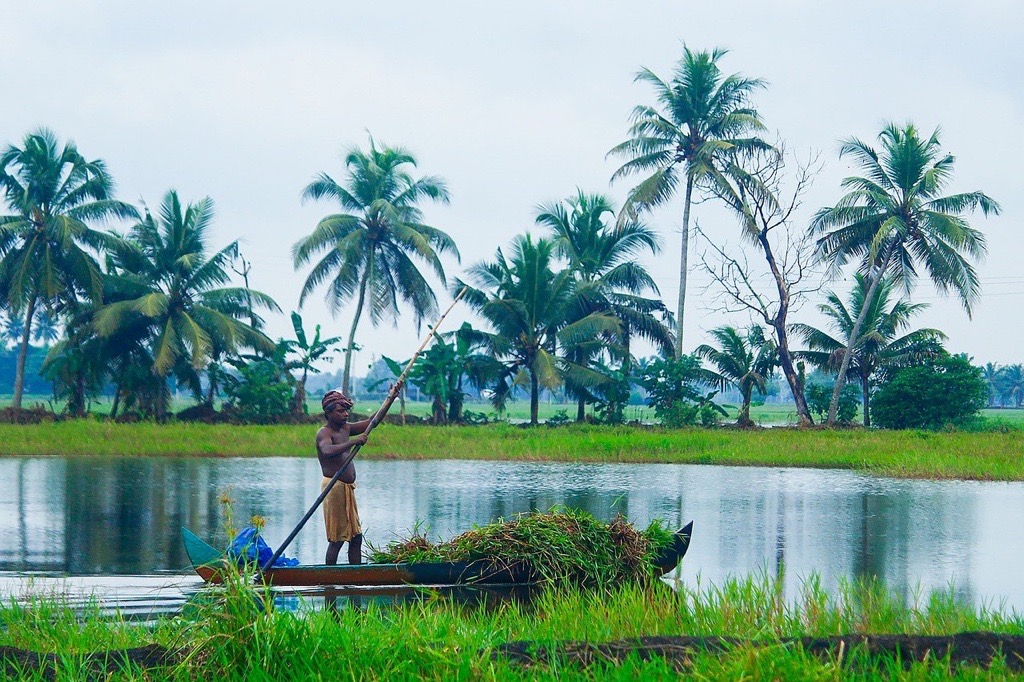Knowledge Forum: Water Resource Strategies for Achieving Food Security Under Changing Climate
Day:2024.11.11
seminar |

Population decline is already starting in some countries including Japan. According to predictions made by the United Nations, the population will start to decrease after peaking in the 2030s in East and Southeast Asia and in the 2050s in Latin America. However, the world population is predicted to keep on growing until reaching its peak in the 2080s, mainly because of the projected population growth in Africa. Demand for food is expected to grow with population growth and the key resource needed to increase food production is water.
The majority of water usage by humans is for food production but there is a regional disparity in the distribution of freshwater resources. Food trade plays a role in improving this disparity: countries that import food can lower their domestic demand for water by importing food instead of producing it domestically. This can be seen as an indirect importation of water. The water that would have been necessary if the food had not been imported and had to be produced domestically is called virtual water. Thus, food trade can be seen as the trade of virtual water.
Currently, major exporters of virtual water include Brazil, China, the United States, Canada, Argentina and Russia. However, climate change is predicted to change the distribution of usable water resources and the temperature, which affects food production and water demands. Can these countries continue to be major exporters of virtual water? While one may think that the impacts of climate change can prompt the emergence of new exporters of virtual water, a wide range of factors other than water can affect food production: climate conditions such as temperature, topographical conditions, soil conditions, farmland area, and availability of capital investment, technology and workforce. Can any country meet these and become a new major exporter of virtual water?
Amidst changes in climate, demographics and geopolitical situations, developing countries may be forced to make difficult decisions for achieving food security. Under such circumstances, what kind of water resource strategies could be effective options? Furthermore, how can development cooperation assist such strategies?
In this Knowledge Forum, Professor Oki Taikan, a world-renowned researcher in hydrology from the University of Tokyo, will give a lecture. The lecture will be followed by a panel discussion featuring Shiratori Sakiko, Project Leader, Information and Public Relations Office, Japan International Research Center for Agricultural Sciences (JIRCAS), and Sato Ichiro, Executive Senior Research Fellow, the JICA Ogata Sadako Research Institute for Peace and Development, for further discussion.
16:00‐16:05 Opening Remarks
Miyahara Chie, Director General, JICA Ogata Research Institute
16:05‐16:50 Keynote Speech “Water Resource Strategies to Achieve Food Security in a World Where Climate Change Is Worsening”
Oki Taikan, Professor, The University of Tokyo, Graduate School of Engineering / Distinguished Fellow, JICA Ogata Research Institute
16:50‐17:50 Panel Discussion and Q&A
Oki Taikan, Professor, The University of Tokyo, Graduate School of Engineering / Distinguished Fellow, JICA Ogata Research Institute
Shiratori Sakiko, Senior Researcher, Japan International Research Center for Agricultural Sciences (JIRCAS)
Sato Ichiro, Executive Senior Research Fellow, JICA Ogata Research Institute
17:50 Closing Remarks
Please register by clicking here.
*Registration will be closed at noon December 5th (Japan time).
JICA Ogata Sadako Research Institute for Peace and Development (Ms. Kajino)
E-mail:dritrp@jica.go.jp
scroll